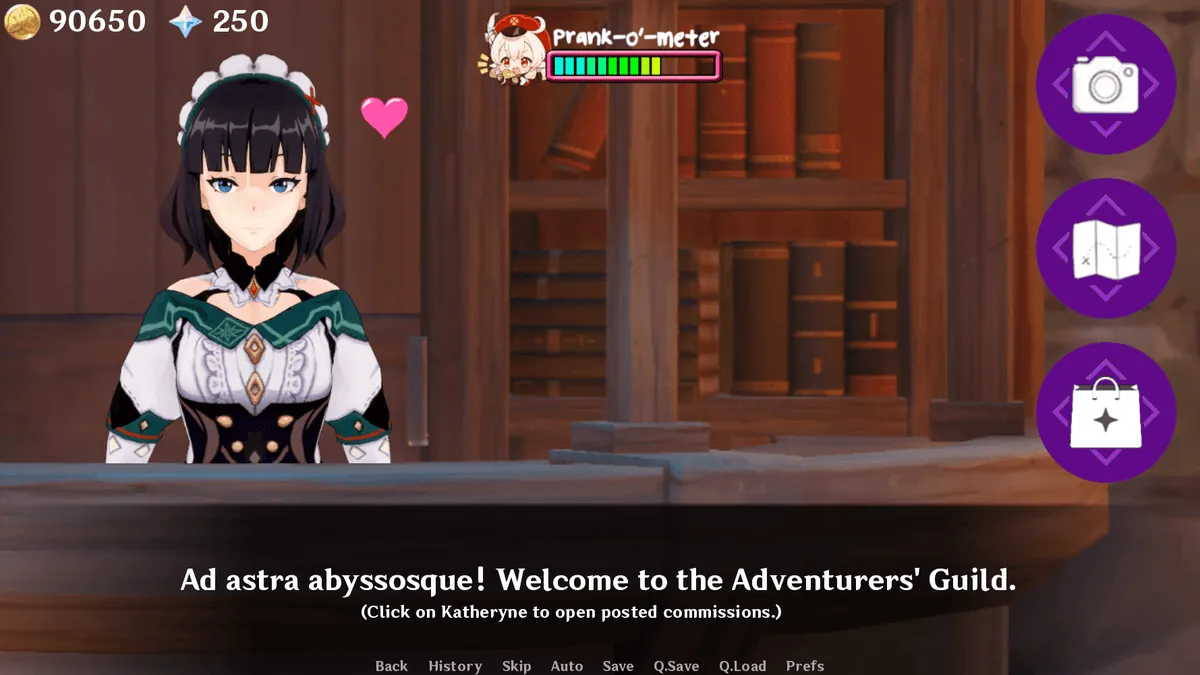
Annie’s School Days
Play Annie’s School Days
Annie’s School Days review
Unraveling the Mechanics and Narrative of This Provocative School-Based Simulation
In the evolving landscape of adult-themed gaming, Annie’s School Days emerges as a polarizing narrative-driven experience. This school management simulator combines strategic decision-making with mature storytelling, challenging players to navigate complex relationships while maintaining authority. Through its dynamic stat system and multiple endings, the game creates a unique blend of power fantasy and consequence-driven gameplay that demands careful analysis.
Core Gameplay Mechanics and School Dynamics
Character Development Through Stat Management
Picture this: you’re juggling lesson plans, student meltdowns, and a very suspicious janitor lurking near the locker rooms. Welcome to Annie’s School Days, where running a school feels less like a noble calling and more like herding cats on a caffeine crash 💥. At its core, this school management simulator thrives on its relationship stat system, a web of emotions and traits that shape every interaction. Let’s break it down.
Your mornings start with administrative chaos—assigning teachers, balancing budgets, and dodging angry parent calls. But here’s the kicker: how you handle these tasks directly feeds into three key stats—Shame, Submission, and Lust. Think of them as a twisted Bermuda Triangle 🌀 that swallows your moral compass whole. For example, letting a student skip detention might boost their Lust (making them bolder) but tank their Shame (because, well, rules are for suckers).
| Attribute | High Stat Effect | Low Stat Effect |
|---|---|---|
| Shame | Unlocks diplomatic story paths | Triggers rebellious student behavior |
| Submission | Increases staff loyalty | Raises risk of student protests |
| Lust | Opens romantic subplots | Decreases academic performance |
By afternoon, you’re deep in student drama. One wrong dialogue choice, and poof—your star pupil transfers schools, taking your precious weekly academic metrics down with them. My first playthrough? I accidentally turned the chess club into a gossip hub because I prioritized Lust over Shame. Rookie mistake 😬.
Evenings are for scheming. Here’s where the hidden corruption meter creeps in. That “harmless” favor for the principal? It’s not just about swapping textbooks—it’s a slippery slope toward one of the game’s 12 multiple ending scenarios. Pro tip: Balance short-term gains with long-term consequences. Your future self will thank you.
Decision Consequences and Relationship Building
Let’s get real: Annie’s School Days isn’t here to coddle you. Every choice ripples through the relationship stat system, and there’s no undo button. Take my friend Jake’s playthrough: he maxed out Submission early, thinking it’d make him the “cool teacher.” Instead, students walked all over him, and the disciplinary mechanics backfired spectacularly. By week three, his classroom resembled a meme page come to life 🚨.
The game’s brilliance lies in its multiple ending scenarios, which hinge on subtle interactions. For example:
– Ignoring bullying incidents slowly boosts the hidden corruption meter, unlocking darker story branches.
– Praising a struggling student might tank their Lust but skyrocket their academic performance.
💡 Hot tip: Use the “pause and plan” tactic. Before major decisions, check how each option affects your stats. It’s like chess—think three moves ahead.
Romance subplots? They’re not just fluff. A high Lust stat opens doors, but overdo it, and you’ll trigger gossip that tanks staff morale. And don’t sleep on the disciplinary mechanics—detention isn’t just about punishment. Use it strategically to lower Shame in troublemakers or boost Submission in rule-followers.
Time Management in School Operations
Ever tried microwaving ramen while answering emails? Multiply that stress by 10, and you’ve got the school management simulator aspect of Annie’s School Days. Your schedule is split into three phases:
- Morning Madness 📅: Assign teachers, handle budgets, and dodge that one parent who’s always complaining about cafeteria food. Skimp here, and your weekly academic metrics nosedive.
- Afternoon Interactions 🧑🏫: Navigate student requests, club activities, and surprise events (like a very awkward fire drill).
- Evening Strategy 🌙: Review stats, plan upgrades, and decide whether to bribe the school board or expose their secrets.
The disciplinary mechanics add another layer. Skip too many detentions, and your hidden corruption meter spikes, but over-discipline, and students rebel. It’s a tightrope walk—one misstep, and you’re facing a student strike or worse, a staff mutiny 😱.
Case in point: During my “strict principal” run, I cracked down on every minor infraction. By mid-game, the relationship stat system was in shambles—students staged a walkout, and I got the “Overbearing Tyrant” ending. Lesson learned: Balance authority with empathy.
So there you have it—mastering Annie’s School Days means embracing chaos, strategizing like a warlord, and remembering that every choice matters. Whether you’re chasing the “Golden Educator” ending or diving into the moral gray zone, this school management simulator keeps you hooked with its razor-sharp relationship stat system and devilish multiple ending scenarios. Now go forth—your students (and that suspicious janitor) are waiting 🎮✨.
Annie’s School Days presents a complex examination of power dynamics through its innovative blend of management simulation and narrative experimentation. While controversial in its themes, the game’s intricate systems and branching storytelling offer unparalleled replay value for mature audiences. As the development team prepares for major updates, now serves as an ideal time to experience this thought-provoking title and form your own conclusions about its place in modern gaming.




